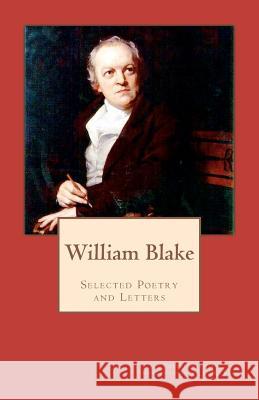William Blake: Selected Poetry and Letters » książka
William Blake: Selected Poetry and Letters
ISBN-13: 9781479155026 / Angielski / Miękka / 2012 / 236 str.
William Blake's first biographer, Alexander Gilchrist, wanted to believe that Blake was a "new kind of man; and hence his was a new kind of art, and a new kind of poetry." However, what sets William Blake apart as a great poet and artist was not that he was so "new," but that he was so "old." He was a part of a mytho-poetic and Vatic tradition as old as poetry itself. Blake was heir to a mytho-poetic tradition that can be traced back to the very foundations of human thought and speech. The extraordinary in William Blake was not the "man," but his Vision and how he expressed it. But most (if not all) of Blake's contemporaries, and a great many since, wrote Blake's genius off as madness. Gilchrist explained, "it is only within that last century and a half that] the faculty of seeing visions could have been one to bring a man's sanity into question." But divine inspiration has always been the hallmark of mythological poetry and religious prophetic utterance, and Daemonic inspiration was even the source of Socrates' rationalism. It is realizing and perfecting the "visionary" component of the human mind, which is the central focus of most Visionary's work - sometimes to the point of alienating those do not share in the Visionary understanding. But Blake "claimed the possession of some powers only in a greater degree that all men possessed and which they undervalued in themselves & lost through love of sordid pursuits." The Visionary, while seen as extraordinary and a genius, is only a glimpse of what all human beings can experience for themselves. Blake's poetry needs to be read as the expression of a visionary genius who saw what others could not see. He is an enduring testament to the creative powers of the human mind. The book includes: Selected Poetry of William Blake Songs of Innocence Songs of Experience The Book of Thel The Marriage of Heaven and Hell All Religions are One There is NO Natural Religion The Book of Urizen Jerusalem Selected Letters of William Blake
Zawartość książki może nie spełniać oczekiwań – reklamacje nie obejmują treści, która mogła nie być redakcyjnie ani merytorycznie opracowana.











